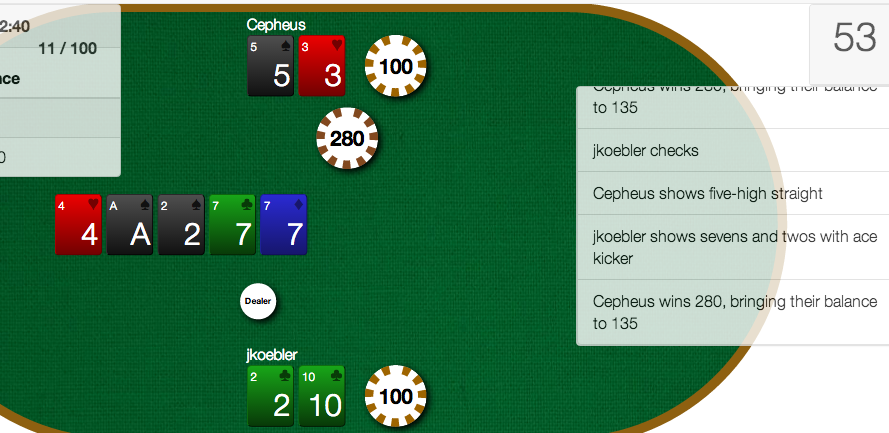
There have been big advancements in artificial intelligence over the last couple of years, but it is time to start thinking what these advancements mean for mankind. Sure, it is great that these AI technologies are getting better, faster and smarter, but how smart is too smart?
A group of researchers from the University of Alberta recently announced an unbeatable poker program that they say marks a huge breakthrough in AI. The program, Cepheus, is the first artificial intelligence program able to solve a human game without having access to all possible information about it, according to the researchers. In addition, Cepheus constantly plays games against itself and improves its strategy. If it is possible for these researchers to develop a program that can outsmart its opponents in a poker game, and also teach itself new strategies as it plays, who is to say that there isn’t a computer program out there right now dominating in online poker games?
Think about it: to play an online poker game you basically need a screen name and some money. If someone has access to a computer program as advanced as Cepheus, they could easily set it up at their computer to constantly play games. So, not only does humanity have to worry about these technologies taking over our jobs, but now we also have to worry about them making more money than us as well?
AI having a monetary advantage over us isn’t something new; stock markets use automatic traders that are always steps ahead of mankind. But the advancements made in this area such as Cepheus bring up a major concern: Can we stand against the computers we’ve built?
Protecting humankind from AI is something that has been at forefront of the Future of Life Institute. Just recently, members of the institute, along with AI leaders, have signed an open letter pledging to protect us from the dangers of artificial intelligence, and they make a huge point. There already have been reams of research on advancing AI and the great potential benefits, but how much research has been done on the possible implications that can come from the innovation of AI? Stanford University is undergoing a hundred-year-long study to reveal the effects AI has on society, but that won’t be soon enough for most of us.
We need to be having these discussions on how to protect ourselves now or we may end up like the “Star Trek” episode The Measure of a Man, where Captain Louvois rules that Lieutenant Commander Data, an artificial intelligence lifeform, should have the same freedoms as humans.





